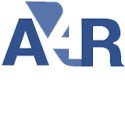Schedule a meeting online
Book sessionWhat the IRS Really Wants to Know About Your Payment App Activity in 2025
By: Ernie Neve
If you’ve ever received money through Venmo, PayPal, or Cash App, you’re probably wondering if it’s going to land you on the IRS’s radar. Spoiler: starting in 2025, it just might.
Here’s what’s going on.
The IRS has new rules in play that will require third-party payment networks (like PayPal, Stripe, Square, etc.) to report business transactions over $5,000 annually. This is a big change from previous thresholds and signals a more aggressive stance on digital income reporting.
It’s important to note: this isn’t about splitting rent with your roommate or getting paid back for brunch. The IRS is specifically focused on business activity—and they want to make sure it’s being taxed appropriately.
So what should you do?
1. Separate Business and Personal Payments
If you haven’t already, it’s time to create a separate account for your business transactions. Mixing personal and business funds on apps like Venmo or Cash App can create a major headache when the 1099-K shows up next January.
2. Keep Good Records
Just because the app is reporting your income doesn’t mean it’s correct—or tells the whole story. You’ll still need to track your own expenses, returns, and any income that’s not taxable. Documentation will be key.
3. Talk to a Tax Pro Sooner Than Later
The worst thing you can do is wait until tax season and be surprised by a 1099-K you weren’t expecting. If you regularly use digital payment apps for business, schedule time with your accountant now to review what’s coming.
The takeaway? The IRS is turning up the heat on payment apps, and 2025 is when the changes kick in. Get ahead of it now, and you’ll avoid confusion—and possibly penalties—down the road.




